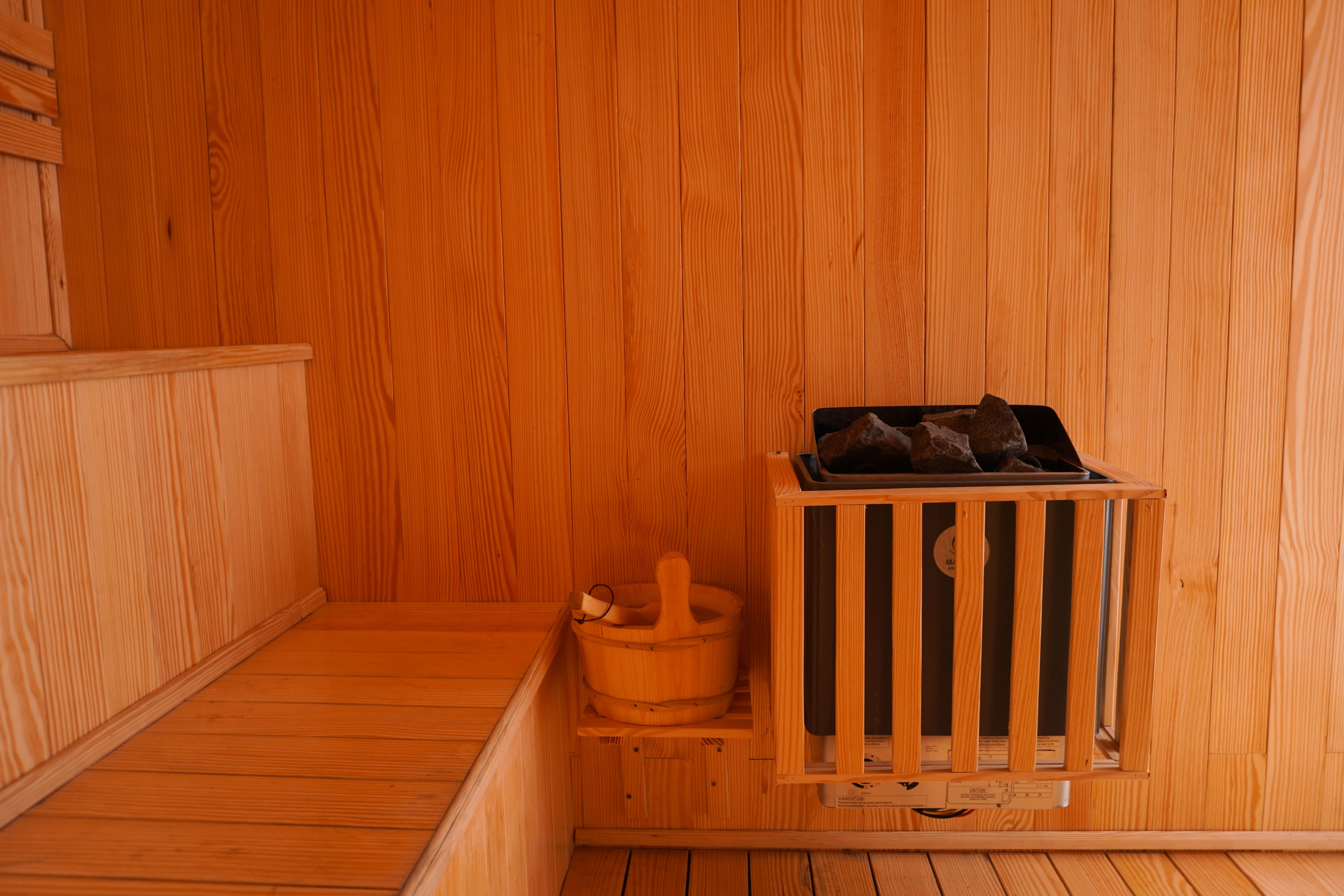
What are the benefits of sauna after workout?
Sauna use can have various effects on the body, similar to those of low to moderate exercise. Some of the potential benefits of sauna after workout are:
Improved cardiovascular health: Sauna use can increase the heart rate and blood circulation, which can help lower blood pressure, reduce the risk of heart disease, and improve the function of blood vessels.
Reduced muscle soreness and faster recovery: Sauna use can help relax the muscles, ease the pain, and speed up the healing process after exercise.
Enhanced endurance and performance: Sauna use can help the body adapt to heat stress, which can improve the ability to exercise in hot conditions and increase the time to exhaustion .
Detoxification and immune system boost: Sauna use can induce sweating, which can help flush out toxins, bacteria, and other impurities from the skin and body . Sauna use can also stimulate the production of white blood cells, which can help fight infections and inflammation .
Stress relief and relaxation: Sauna use can trigger the release of endorphins, the natural painkillers and mood enhancers of the body . Sauna use can also lower the levels of cortisol, the stress hormone, and promote a sense of well-being and calmness .

What are the drawbacks of sauna after workout?
Sauna use is generally safe and well-tolerated by most people, but it also has some risks and limitations. Some of the possible drawbacks of sauna after workout are:
Dehydration and electrolyte imbalance: Sauna use can cause significant fluid and mineral loss through sweating, which can lead to dehydration, dizziness, headache, nausea, and fatigue . This can be especially dangerous if the person is already dehydrated from exercise or has a pre-existing medical condition.
Overheating and heat exhaustion: Sauna use can raise the body temperature to dangerous levels, which can result in heat exhaustion, heat stroke, or even death . This can be more likely if the person has a fever, infection, heart problem, or other health issue that affects the body’s ability to regulate heat.
Interference with medication and medical devices: Sauna use can alter the effects of some drugs, such as blood pressure medication, antidepressants, and painkillers . Sauna use can also damage some medical devices, such as pacemakers, insulin pumps, and hearing aids .
Skin irritation and infection: Sauna use can cause dryness, itching, and redness of the skin, especially for people with sensitive skin or skin conditions . Sauna use can also increase the risk of fungal, bacterial, or viral infections, especially if the sauna is not clean or well-maintained .
How to use sauna safely and effectively after workout?
To enjoy the benefits and avoid the drawbacks of sauna after workout, it is important to follow some safety tips and precautions. Here are some of them:
Consult your doctor before using a sauna: If you have any medical condition, such as high blood pressure, heart disease, diabetes, or pregnancy, you should check with your doctor before using a sauna. Some people may need to avoid sauna use altogether or limit the frequency and duration of sauna sessions.
Drink plenty of water before, during, and after sauna: To prevent dehydration and electrolyte imbalance, you should drink at least two to four glasses of water before entering the sauna, sip water throughout the sauna session, and drink another two to four glasses of water after leaving the sauna. You can also add some salt or electrolyte supplements to your water to replenish the minerals lost through sweating.
Avoid alcohol and drugs before and after sauna: Alcohol and drugs can impair your judgment, increase your risk of dehydration and overheating, and interfere with your medication and medical devices. You should avoid consuming alcohol and drugs at least 24 hours before and after using a sauna.
Limit the time and temperature of sauna: To avoid overheating and heat exhaustion, you should start with a lower temperature and a shorter time, and gradually increase them as you get used to the sauna. The recommended temperature for a sauna is between 70° to 80° Celsius or 158° to 176° Fahrenheit, and the recommended time is between 15 to 20 minutes per session. You can take breaks between sessions and cool down gradually by taking a shower, sitting in a cool room, or going outside.
Listen to your body and stop if you feel unwell: If you experience any symptoms of discomfort, such as dizziness, nausea, headache, chest pain, or difficulty breathing, you should leave the sauna immediately and seek medical attention if needed. Do not ignore the signs of your body and do not push yourself beyond your limits.

Conclusion
Sauna after workout can have many benefits for your health and fitness, but it also has some risks and drawbacks. To use sauna safely and effectively after workout, you should consult your doctor, drink plenty of water, avoid alcohol and drugs, limit the time and temperature of sauna, and listen to your body. By following these tips, you can enjoy the sauna experience and enhance your well-being.
Source: Physical Therapy Central





 05 Mar 2024
05 Mar 2024
